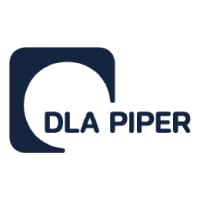

Head of legal and compliance ambassador | Siemens AS



Beate Brevik
Head of legal and compliance ambassador | Siemens AS
Team size: Our Norwegian legal team consists of two qualified lawyers: Kirsti Strøm Fagerhaug and me, who together manage the legal affairs for our operations in Norway.
What are the key projects that you have been involved in over the past 12 months?
Over the past 12 months, I have supported various strategic projects across the company’s core business areas: digital industries, power grid infrastructure, and building automation. Siemens has successfully participated in significant public procurement processes, securing important framework agreements within both power grid infrastructure and building automation sectors. These successful bids have strengthened Siemens’ market position in these key areas. Additionally, we have negotiated and implemented crucial framework agreements with major customers in the digital industry sector, aimed at streamlining the sales process for individual contracts.
In addition to these strategic initiatives, I have played a key role in supporting the company’s operational needs. A notable highlight includes the finalization of the lease agreement for our company’s new headquarters in Oslo. This transaction required careful consideration of multiple factors, including long-term business requirements aligned with our company’s commitment to sustainability and regulatory compliance. While numerous other significant projects have shaped my year, the confidential nature of these matters precludes their detailed discussion.
What do you think are the most important attributes for a modern in-house counsel to possess?
What typically distinguishes in-house counsels from external lawyers is our deeper understanding of the business, allowing us to serve not only as legal advisors, but as strategic business partner and trusted advisor.
For in-house counsel, genuine curiosity and active interest in understanding business operations are essential. This knowledge proves invaluable when assessing business risks, allowing us to apply a commercial mindset that distinguishes between theoretical legal risks and their practical business impact.
Furthermore, strong communication with business stakeholders is vital in building trust and demonstrating that we share the common goal of the company’s success. This alignment must be achieved while steadfastly upholding the company’s values and ensuring compliance with regulatory frameworks. The modern in-house counsel must act as a strategic partner who can balance commercial objectives with legal and ethical considerations.
In today’s rapidly evolving business environment, this role also requires adaptability, particularly as companies undergo digital transformation. The ability to embrace technological advances and understand their legal implications has become increasingly important for effective in-house counsel.
Based on your experiences in the past year, are there any trends in the legal or business world that you are keeping an eye on, of which you think other in-house lawyers should be mindful?
The most significant trend reshaping the legal landscape is undoubtedly the growing influence of artificial intelligence (AI). While AI represents a powerful tool that can enhance legal work efficiency, it is crucial that we as lawyers maintain our critical judgment and always verify AI-generated responses. Recent concerning examples from courts have shown the dangers of lawyers blindly trusting AI outputs without proper verification. This underscores that developing and maintaining deep legal expertise within our business areas remains essential.
Also, the regulatory landscape is rapidly evolving, particularly in cybersecurity, which has become increasingly critical due to growing global instability. This development intersects with broader trends in corporate responsibility and risk management. As in-house counsel, we must stay ahead of these changes while ensuring robust compliance frameworks.
Additionally, other areas such as ESG, supply chain management as well as export control are all requirements that are becoming more stringent, with increased stakeholder expectations. This requires in-house counsel to develop expertise in these areas and understand their implications for business operations.
These evolving challenges underscore the importance of continuous learning and adaptation for modern in-house counsel, while maintaining strong fundamental legal expertise and critical thinking skills. Success in navigating these trends requires balancing innovation with diligence, and technological advancement with sound legal judgment.